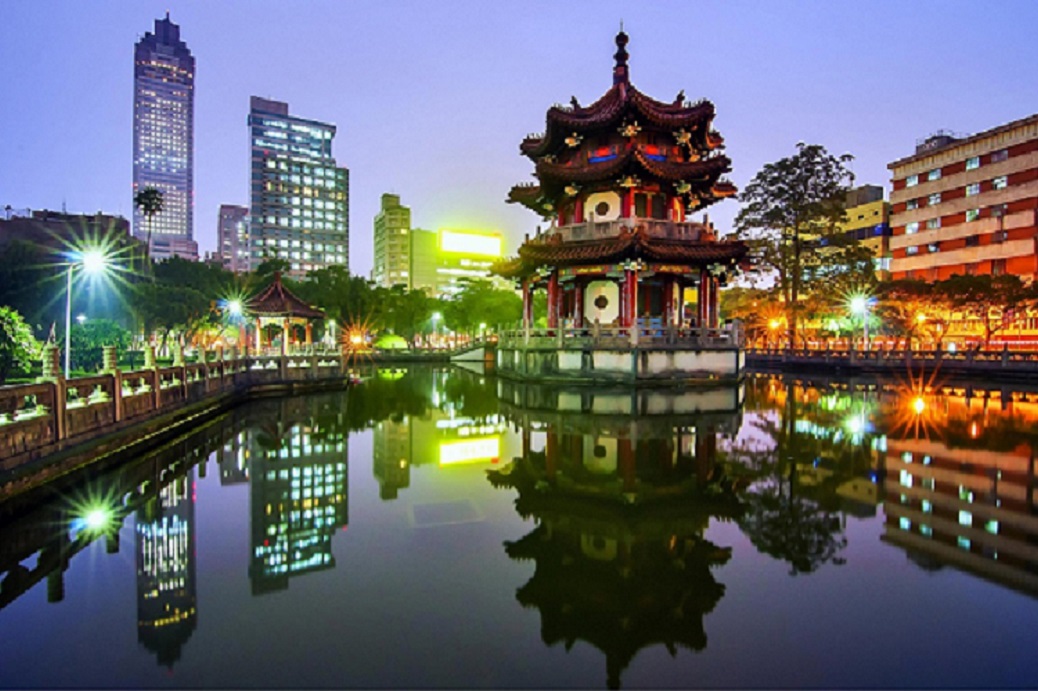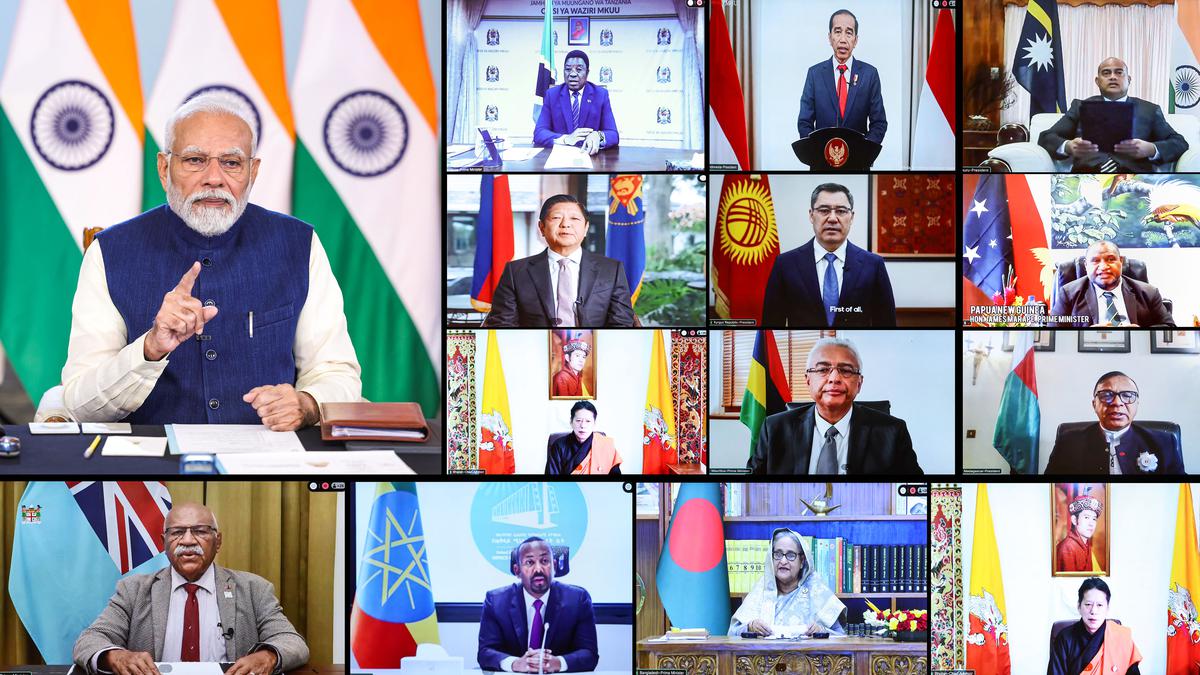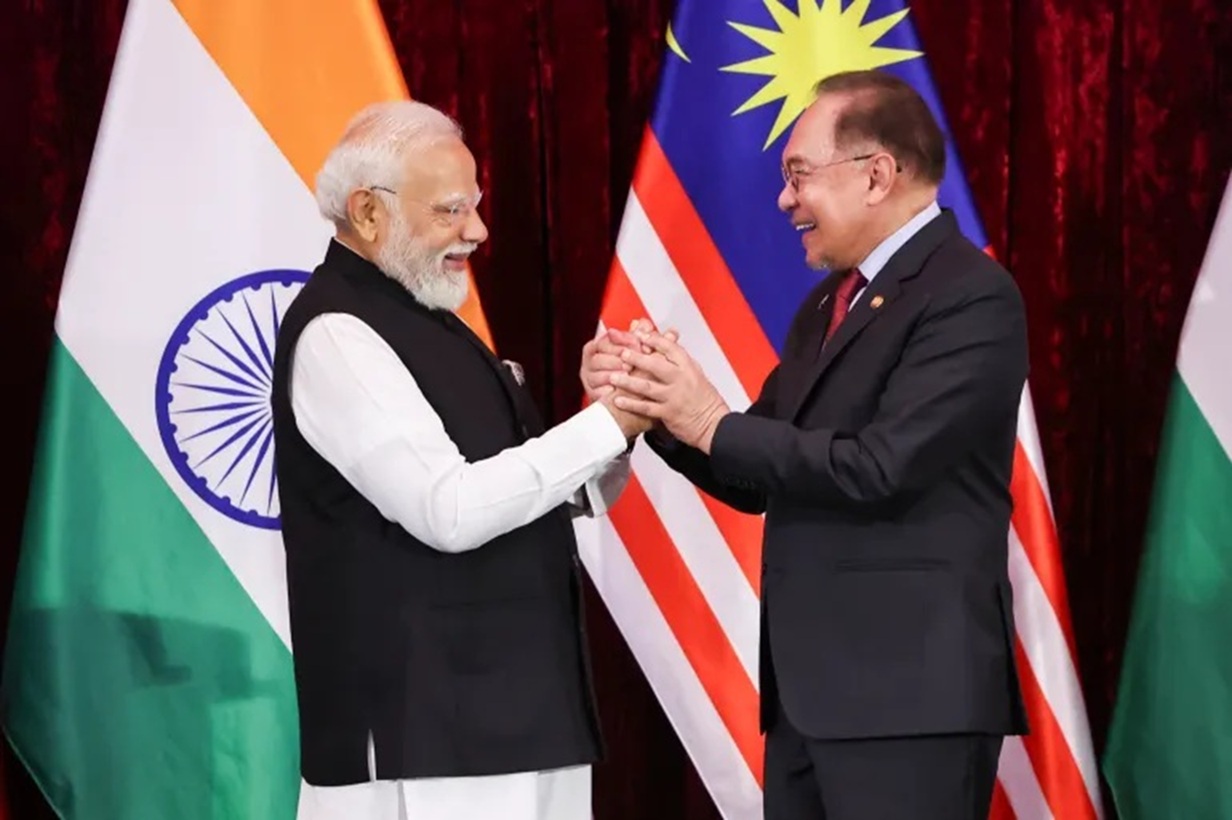India’s stance on the Sino-Taiwan conflict has been the same from the beginning to the most recent statement on the conflict, even after India’s foreign policy evolution. India-Taiwan relations can be reviewed. Why is India staying neutral?
Introduction
India’s relations with Taiwan are slowly improving comparatively through commercial ties and cultural exchange. Both India and Taiwan have their economic interests, India’s aspiration to be a manufacturing hub in Asia and Taiwan’s ambition to transit to an innovation-driven economy. Taiwan shares similar views as India on peace and regional stability, upholding human rights and democratic values, multilateralism, and the convergence of India’s Act East policy and Taiwan’s New Southbound Policy. Both India and Taiwan are looking for more inclusive ties with the US, Japan, and other ASEAN (Association of Southeast Asian Nations) countries. India and Taiwan share a mutual security concern over China.
India is currently unable to have formal diplomatic relations with Taiwan due to India’s adherence to OCP (One China Policy) and has been maintaining bilateral relations through unofficial mediums. Taiwan’s global space was endorsed for its COVID-19 response to the pandemic. There have been many debates to re-evaluate India’s commitments and increasingly drive to support and improve ties with Taiwan after the recent Galwan valley clash with China.
Background India-Taiwan Relations
India has had long-standing ties with Taiwan since the pre-independence period. KMT (Kuomintang) KMT Generalissimo Chiang Kai-shek visited British India in 1942 to progress a closer relationship between India and the ROC (Republic of China). However, the dynamics began to change when the CCP (Chinese Communist Party) took over, and Mao Zedong established the PRC (People’s Republic of China). Many centralists believed humourising the CCP could help India ensure its national security (Hashmi, 2020). Therefore, India altered its recognition from ROC to PRC. Independent India voted to recognise the PRC in 1950, becoming the second non-communist nation to do so. India’s decision received massive criticism from KMT leadership and led to a pause in India-Taiwan relations despite relations with China being suspended for 15 years after the 1962 Sino-Indian War. It was only from the 1990s India established unofficial channels with Taiwan.
India’s interaction with Taiwan has gained momentum over the past decades. It all began with the Former Prime Minister of India, P. V. Narasimha Rao, launching India’s ‘Look East Policy’ in 1992 after the balance of payments crisis, followed by Taiwan’s ‘Go South Policy’, which primarily focused on ASEAN economies. India signed various agreements with Taiwan in agriculture, civil aviation, economics, technology, railways, and education. Taiwan established representative offices- the ITA (India- Taipei Association) and the TECC (Taipei Economic and Cultural Centre) in 1995.
Bilateral investment agreements were signed between Taiwan and India in 2002. Direct flights between Delhi and Taipei began in 2003. In 2004 a trilateral conference was held in the capital city Taipei between India-Japan-Taiwan. To strengthen cultural relations, from 2004, Taiwan started offering scholarships to study Mandarin to Indian students.
Taiwanese legislators and Ma Ying-jeou (former president of the Republic of China) visited India in 2005 and 2006. In 2010 both the countries reduced the visa restrictions and signed degree recognition in higher education MOUs. In 2011 both India and Taiwan signed multiple agreements on trade, customs, and cultural cooperation.
Over the last few years, Taiwan External Trade has established four offices (New Delhi, Mumbai, Chennai, and Kolkata). For the past two decades, India focussed primarily on engaging economic ties with Taiwan. Due to Chinese objections, bilateral relations are only limited to commercial, technological, and limited interaction in cultural exchange, education, and security.
President of Taiwan, Tsai Ing-wen, launched Taiwan’s NSP (New Southbound Policy), the third phase of “Go South Policy” in 2016. This policy attempts to increase international outreach and thereby reduce its dependence on China. India occupies a conspicuous place in the NSP and Taiwan’s foreign policy in a broader sense. Under Taiwan’s fresh eye of interest in the geopolitical scenario. The NSP emphasizes its engagements with India in the Indo-Pacific region, India has expanded its Look East Policy to cover a more broad geographical area from East Asia to Island nations in the Pacific. The synergy between the two policies has boosted economic cooperation.
In 2018, India and Taiwan signed a landmark bilateral Investment agreement promoting investment flow and ensuring the protection and safety of Taiwanese investors. India hosted the Taiwan Film Festival in 2018 to promote Taiwanese culture and encourage ties among youth. In October 2018, the National Gandhi Museum of India and Taiwan’s Ministry of Culture organised an exhibition on Mahatma Gandhi’s teachings in Taipei.
Taiwan is a central hub of regional supply mechanisms. Recently India and Taiwan are deliberating to sign a $7.5 bn USD deal to set up a Semiconductor Chip Manufacturing Plant. The Indo-Taiwan science and technology cooperation program initiated many fully funded R&D projects on AI (Artificial Intelligence), 5G, Biotechnology, Cyber Security, Micro/Nano-electronics, Agro and Food Processing Technology, Renewable energy, and embedded systems & sensors.
Since the inception of bilateral relations, two-way trade has increased manifolds from $2 bn USD in 2006 to $5.7 bn USD in 2020, recording 185% growth. Between 2018 and 2019, the FDI inflows from Taiwan have increased ten times, the cumulative flows worth $602.35 mn USD from April 2000 to June 2021 (Plus, 2021). India essentially exports organic chemicals and Naphtha, metal and agricultural products, and imports solar cells, PVC (polyvinyl chloride), ICT (Information Communication Technology) Products, electrical machinery. Currently, over 200 Taiwanese companies are operating in India.
Recently, in 2020 the Indian government has approved the Taiwanese firms (Foxconn Technology Group, the Wistron Corp, and the Pegatron Corp) for the investment of more than $143 bn USD for Smartphone production. (Chaudhary & Horton, 2020)
Ongoing Impediments
The Chinese influence is impeding the relations between India and Taiwan. Strategically, both India and Taiwan have a common security threat: China, which has its roots in China’s claims of Indian Territory and its ambition to annex Taiwan respectively.
To begin with, India viewed Taiwan through the Han Chinese lens over time. India has always remained cautious about Taiwan and has had neutral bilateral ties. However, since 2010, India abstained from mentioning the OCP in official documents due to the Tibet issue.
Even in a hypothesized India-Taiwan-China triangle, China has more chances to dominate the bilateral ties between India and Taiwan single-handedly. China is way more advanced in all various fields than India. For instance, science and technology, industrial production, and others. However, in the military domain, India does not appear to be a pushover. Hence both countries are always conscious of China’s reaction in bilateral relations.
China’s relations with India have always been hypocritical. Apart from having border disputes, China continued to develop more profound economic and security ties with Pakistan, like the BRI’s (Belt and Road initiative) CPEC (China Pakistan Economic Corridor) initiative and its surrounding effects on India. China abstained from supporting India’s objection to POK (Pakistan-occupied Kashmir). Both China and India engaged in a series of military face-offs in Ladakh, Doklam, and more recently, Galwan Valley. However, after all this, China still expects India to reaffirm India’s stance on the Sino-Taiwan Conflict and refrain from having diplomatic relations with Taiwan.
The issue of Taiwan’s sovereignty has been more concerned with cross-strait ties. Taiwan has faced the threat of invasion and persuasive unification from the CCP the whole time. But the situation became more intense under Xi Jinping’s leadership for so-called ‘peaceful reunification. Recently, Chinese military activities in the Taiwan Strait threatened Taiwan’s regional peace and security. Taiwan believes China is impending the bilateral relations so the internal dynamics can advance the ties. (Karackattu, 2019)
Currently, India and Taiwan have no joint mechanism to address the shared security threat as the ties are only limited to economic ties. India has been holding its stance for a long time to settle Chinese aggression.
Nevertheless, India’s relations with China are only deteriorating even after having a neutral stance. Therefore, as both countries’ relations with China are escalating, India needs to reconsider its commitment to the OCP and extend its relations with Taiwan.
Geopolitics and Convergence Options
Chinese expansionism in recent times led to the emergence of the arc of convergence of strategic interests between the other states. India missed the boat by abstaining from having bilateral relations with Taiwan till the present. Both India and Taiwan are natural allies and share common security concerns and hold similar interests. Through a broader lens, engaging with Taiwan not only accommodates India’s growing concerns about China but further promotes trade, technology, and R&D cooperation, encouraging cultural and educational activities and Thus, expanding India’s soft power diplomacy. India can expand a strategic partnership, including economic and defence-security cooperation with Taiwan.
The Chinese factor can be a decisive driver for India’s cooperation with Taiwan, India can signal coercion to China by providing political and diplomatic support to Taiwan. Taiwan has close geostrategic contiguity and cultural and linguistic links with China. Taiwan invested profoundly in China studies over time. Therefore, Taiwan’s expertise can help India understand China’s strategic profundity. India’s security community can learn mandarin and strengthen their understanding of Chinese culture. Yielding hard and soft cyber capabilities can mitigate cyber-attacks. Strengthening the cooperation does not necessarily mean a military alliance. However, regular information exchange can help both countries to negate possible threats. (Basrur & Shang-Su, 2021)
Taiwan plays a vital role in sustaining stability in the Indian Ocean region due to its significant fishing presence. India can deploy its military attaché to their missions in Taiwan like the U.S. and Japan to have a stronghold in Taiwan Strait and the South China Sea regions. Approximately 55% of India’s trade with the Indo-Pacific passes through the South China Sea (Pant, 2021). India can extend its Oil and gas exploration ventures in the region with Taiwan’s assistance. India can coordinate with Taiwan to send their regional humanitarian assistance and disaster relief efforts.
Taiwan enjoys a favourable trade balance with China, whereas India’s imports from China rose by 67% from the last year (Press Trust of India, 2020) . Therefore, the economic cooperation between both countries can create mutual benefit and reduce dependence on China. Both India and Taiwan have complementary financial arrangements. India’s software expertise, along with Taiwan’s hardware, can result in mutual interest. India can benefit from high-tech corporations and thereby join the regional supply chain mechanisms.
Technological cooperation like working on space, semiconductors, AI, and 5G can improve its ties with India. Taiwan is willing to converge New Southbound policy with the IPOI (Indo-Pacific Ocean initiatives) to develop some action plans on Maritime Security, Ecology, Capacity building and Resource sharing, technological Cooperation, transportation, and others. Taiwan is also willing to be included in SCRI (Supply Chain Resilience Initiative) launched by India, Japan, and Australia.
Taiwan is the hub of manufacturing automobiles, hardware, electronics, information, and communication technology, and others to support India’s initiatives (Skill India, Digital India, Smart Cities, and Make in India campaigns). Taiwan’s food processing and agro-based technology can help India to modernise its agricultural sector. Hence, India can make use of this technology to produce value-added products.
India can be a new potential base for Taiwan to relocate its manufacturing bases from China. Taiwan is a world-driving semiconductor supplier and technologically advanced. Taiwan ranks number one in integrated circuit foundries and patent activities and number ten in economic innovation globally. Taiwan can support India’s digital revolution. Partnering with Taiwanese pharmaceutical companies can significantly lower the high drug prices. Taiwan can provide logistical support for major infrastructure projects in India.
Spiritual intimacy can bring rationality in bilateral relations. India being the birthplace of Buddhism, can promote its soft power diplomacy through Religious tourism. India can use Taiwan as a launchpad into the Indo-Pacific under Act-East policy.
Way Forward
Today’s world is reshaping with the evolution of multilateralism and multilateral dialogue, anticipating a normative world order that incorporates and benefits nations. Conscious of its perceived historical relationship with China, India has diligently avoided establishing a formal relationship with Taiwan. However, notwithstanding India’s stated commitment to OCP, the dynamics of the world order are changing in such a manner that the time has come for India to look at its relation with Taiwan more critically.
Over time India proceeded tentatively towards Taiwan, promoting only trade and investments yet ignoring formal diplomatic relations. India-Taiwan relations have substantial potential. Apprehensions on the government-to-government formal diplomatic ties are undermining the bilateral ties. Thereby the potential in various fields of partnership is underutilised. Therefore, internal dynamics can be maximised significantly through strengthening bilateral relations. India being a sovereign state, the national interest should be the absolute driving force rather than external consciousness. India needs to accept that China should not influence India’s bilateral ties with Taiwan. The time has come to rethink India’s commitments and preferences, particularly after the recent Galwan Valley dispute. Both the countries can benefit from the convergence of India’s Act East policy and Taiwan’s New Southbound Policy. This convergence can provide a precise framework to strengthen cooperation at several multidimensional levels from people to people to government level.
The evolution of QUAD can embrace Taiwan, and India can support Taiwan’s participation in many multilateral dialogues, inter-party dialogues, and diplomatic events. India can emulate the U.S. and Japan’s policy towards Taiwan, prioritising Taiwan not only prevents Chinese influence but is beneficial economically, politically, and culturally to India.
The time has come for India to revisit its commitments to OCP after the recent Chinese aggression. India needs to engage with Taiwan through formal diplomatic ties. India needs to reconsider its stance of staying neutral in view of the potential benefits brought out earlier. Alternately, If India is still cautious about reviewing its stance on OCP then India should adopt more positive engagement through other channels with Taiwan, in order to derive the full benefit of bilateral ties for balancing its strategic interest.
Nevertheless, what prevails to conspicuous is how the two states continue the current momentum.
Disclaimer: The views and opinions expressed by the author do not necessarily reflect the views of the Government of India and Defence Research and Studies
Title image courtesy: https://www.thoughtco.com/
References:
Hashmi, S. (2020, January-March). India-Taiwan Relations: Time is Ripe to Bolster Ties. Indian Foreign Affairs Journal, 15(1), 33-47.
Plus, T. (2021, September 6). Invest India/Taiwan Plus. Retrieved October 2021, from Invest India: https://www.investindia.gov.in/country/taiwan-plus
Chaudhary, A., & Horton, C. (2020, October 20). India considers trade talks with Taiwan as both spar with China. Retrieved October 2021, from Business Standard: https://www.business-standard.com/article/current-affairs/india-considers-trade-talks-with-taiwan-as-both-spar-with-china-120102000533_1.html
Karackattu, J. T. (2019). The Case for a Pragmatic India-Taiwan Parternship. New Delhi: Carnegie India.
Basrur, R., & Shang-Su, W. (2021, May 6). CO21077 | Taiwan and India: Building Bigger Together? Retrieved October 2021, from RSiS: https://www.rsis.edu.sg/rsis-publication/rsis/taiwan-and-india-building-bigger-together/#.YYypui8RrX8
Pant, H. V. (2021, September 2). The strategic signal of an Indian presence in the South China Sea. Retrieved October 2021, from ORF: https://www.orfonline.org/research/strategic-signal-indian-presence-south-china-sea/
Press Trust of India, (2020, December 8). Chinese exports to India decline 13%; India’s trade up 16% in 2020. Retrieved October 2021, from Busines Standard: https://www.business-standard.com/article/economy-policy/chinese-exports-to-india-decline-13-india-s-trade-up-16-in-2020-120120701335_1.html





